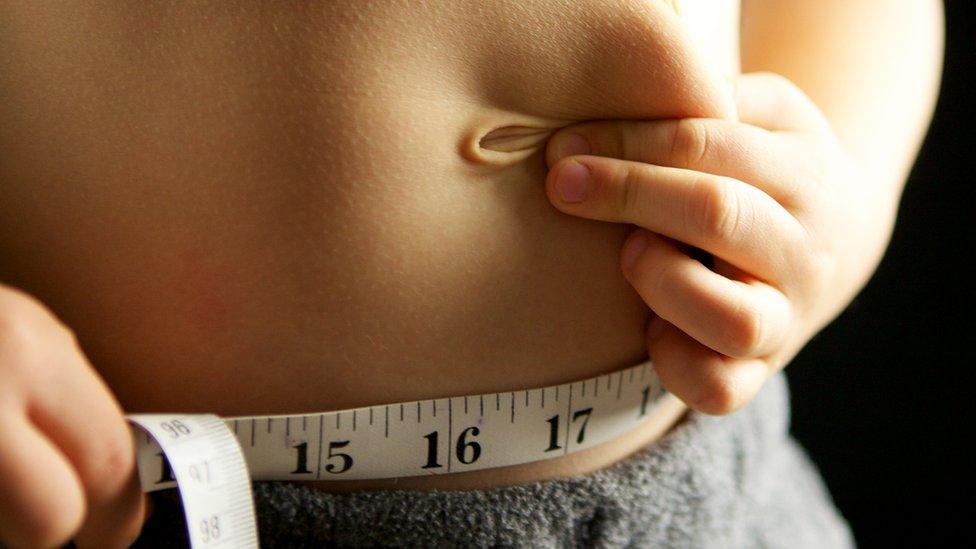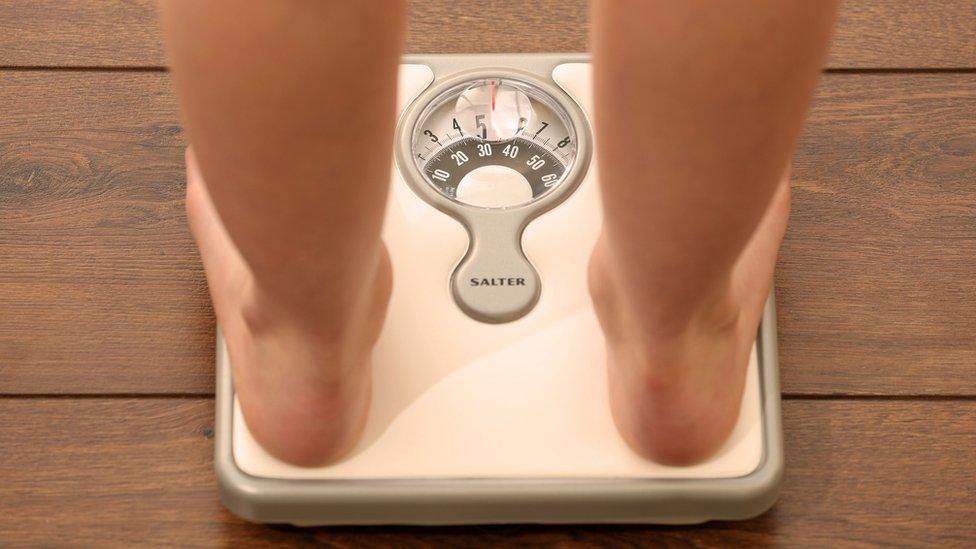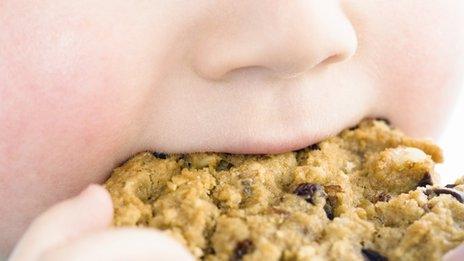Scotland's child obesity 'far worse than thought'
- Published

Experts say current methods of measuring healthy weight could be underestimating the problem.
Scotland's child obesity problem could be greater than expected as researchers said weight calculations may be inaccurate.
The University of Strathclyde experts said many young people who appear healthy have "high body fat content".
They also warned the current method of measuring weight - Body Mass Index (BMI) - risks underestimating the scale of the problem by as much as half.
Researchers estimated more than 100,000 young Scots are now obese.
They said using an alternative method to measure obesity would give a "far more accurate picture of the scale of the problem".
However they said the method would be "more costly" and would take more time.
Prof John Reilly of Strathclyde's school of psychological sciences and health said it "could be worth the consideration and investment".
He added: "BMI is a straightforward and cost-effective way of measuring obesity in children. It has become widely-used in national surveys and in public health information but it is a very crude proxy measure.
"Large numbers of children and adolescents with an apparently healthy BMI for their age have an excessively high body fat content.
"Childhood obesity is at least twice as prevalent as reported in national surveys and official publications - in fact, more than 100,000 Scottish children and young people will have obesity at present.
"The deuterium dilution measure would be more costly and would take longer than BMI - three to four hours compared with 15 to 20 minutes for BMI - but it would present us with a far more accurate picture of the scale of the problem.
"It needs to be properly studied and could be worth the consideration and investment."
'Urgent measures needed'
Prof Reilly recently led a study of obesity in Africa, which involved 1,500 primary schoolchildren across eight separate countries.
This found a significant difference between the level of children defined as obese by BMI (9%) and those classed as obese by excessive fatness as measured by total body water.
The second method - called deuterium dilution - saw 29% of children classed as obese.
Prof Reilly spoke out as the Active Healthy Kids Global Alliance (AHKGA) report, which assesses trends in childhood physical activity in 49 countries was published.
The Strathclyde University expert was the Scottish lead for AHKGA study, which gave Scotland a D+ rating - placing the country in the lower half of the rankings.
Prof Reilly continued: "Our Africa study demonstrated the extent to which BMI underestimates the true prevalence of obesity.
"Combined with the Active Healthy Kids report, it suggests that there is no longer any room for complacency about childhood obesity anywhere in the world; urgent measures will be required to prevent and control the problem."
How does Scotland compare?
Slovenia had the best ranking of any of the nations, with a B, while England was given a C overall.
Scotland's ranking however was better than the USA which was awarded a D, while China was given a D-.
While Scotland scored a B for organised sport and physical activity, it was given an F for high levels of sedentary behaviour amongst youngsters.
The AHKGA report found modern lifestyles, including time spent in front of a screen and tasks becoming increasingly automated, had contributed to the global obesity problem.
Dr Mark Tremblay, president of the AHKGA and senior scientist at the CHEO Research Institute in Ottawa, said: "We all have a collective responsibility to address these cultural and social norms - particularly screen time - because inactive children are at risk for adverse physical, mental, social and cognitive health problems.
"This generation will face a range of challenges, including the impacts of climate change, increasing globalisation, and the consequences of rapid technological change.
"They will need to be purposely physically active in order to grow into healthy, resilient adults who can survive and thrive in a changing world."
- Published27 July 2017

- Published7 August 2018

- Published8 March 2013
